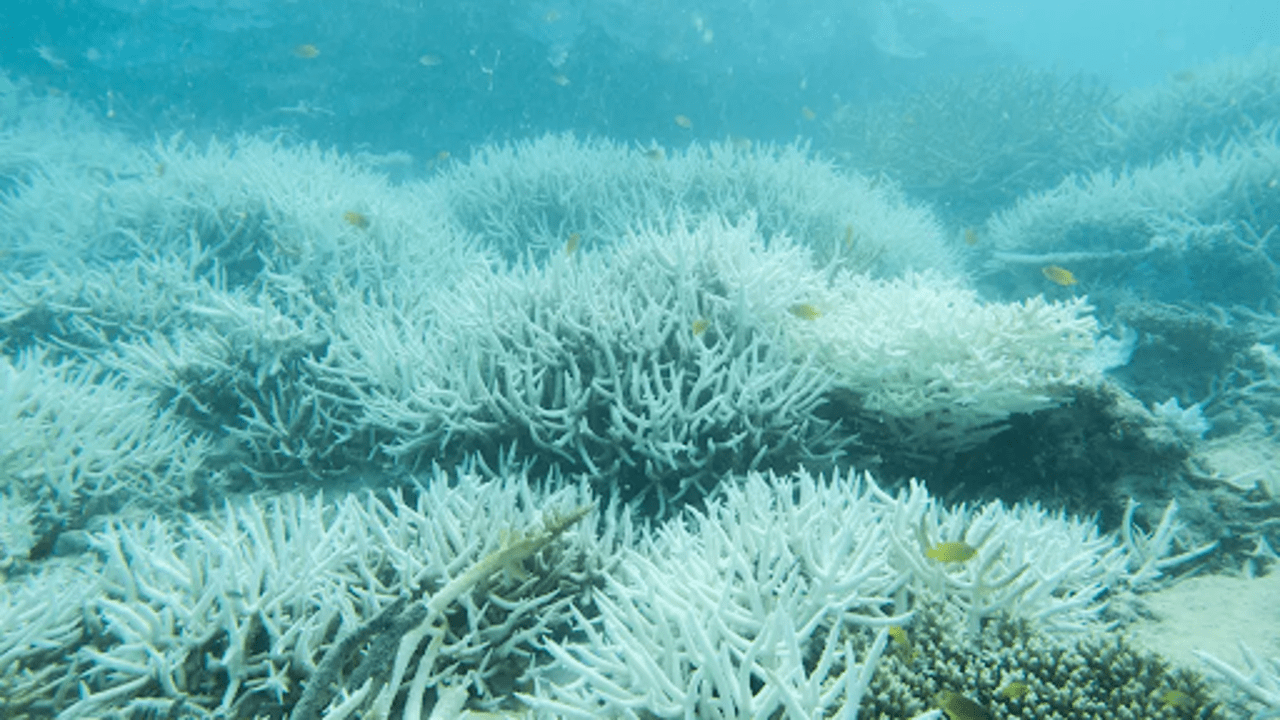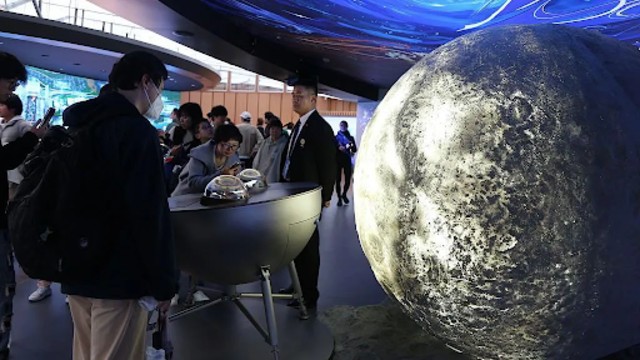
The Great Barrier Reef has experienced five major coral bleaching events in the last nine years. BBC
A new study reveals that the Great Barrier Reef is facing unprecedented threats from climate change, with recent temperatures around the reef being the highest in 400 years. Researchers from Australia have analyzed samples taken from inside the coral, uncovering alarming evidence about the reef's health.
For decades, marine scientists have been collecting core samples from the skeletons of century-old corals. These samples hold valuable chemical clues about the environmental conditions the corals experienced over time. By studying these cores and comparing them with historical sea temperature records, scientists found that the past decade's temperatures were the warmest recorded in the last four centuries.
The extreme heat has led to five major bleaching events in just the past nine years. Coral bleaching happens when elevated sea temperatures force corals to expel the algae living within them. This algae not only provides corals with food but also gives them their vibrant colours. When corals lose their algae, they turn white and are left vulnerable. If the temperature does not cool down, these bleached corals often die or become covered with other types of algae, turning them brown.
The researchers studied samples collected from inside coral skeletons. BBC
Dr. Benjamin Henley, the lead researcher of the study, described the situation as "terrible news" for the reef but also expressed a glimmer of hope. He emphasized that if global warming can be curtailed, there is still a chance for the reef to survive in its current form. Corals have adapted to thrive within specific temperature ranges, and this adaptation is crucial for their survival.
The study has highlighted the urgent need to address climate change. Prof. Helen McGregor from the University of Wollongong stressed the importance of following scientific advice to protect the Great Barrier Reef. The findings could potentially lead to the reef being classified as "endangered" by UNESCO, which would draw global attention to its plight.
Despite the bleak outlook, Prof. McGregor believes that reefs have historically survived significant changes. The key question is what kind of reef will remain if current trends continue. The hope is that by taking immediate action to limit global temperature rise, the current state of the Great Barrier Reef can be preserved.















